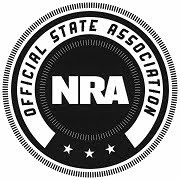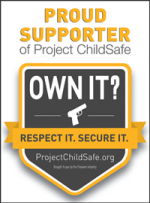Yesterday,
NPR ran a
story that discussed what schools can do to try and prevent shooting incidents like the Aurora theater shooting. Because the shooter was a student at the University of Colorado, some have discussed whether the university should have reported any unusual behavior to law enforcement that could have prevented the shooting.
NPR and other news organizations want access to case files, including a notebook that Holmes reportedly sent to a university psychiatrist before withdrawing from the school that may have described an attack.
The University of Colorado is now reviewing whether there was more they could have done to prevent the shooting. Officials are not commenting on reports that concerns about the suspect were brought to the university's threat assessment team.
Near the end of the report, John Zacker, head of the University of Maryland's Behavior Evaluation and Threat Assessment team made this comment when noting Holmes was apparently denied entry to a shooting range after the owner was "alarmed by his behavior":
"Geez, shouldn't you report that?" he asks. "Why should we place greater scrutiny on the college campus administrators than we do for this shooting range, who observed bizarre behavior?
None of the reports this writer saw says anything about the range observing anything, just a strange or weird message on the shooter's voice mail. This
report from the Denver News states:
It wasn't Holmes' club application that raised a red flag for Lead Valley Range owner Glenn Rotkovich, but rather the outgoing message on his answering machine.
"It was this deep, guttural voice, rambling something incoherent," Rotkovich said. "I thought, 'What is this idiot trying to be?'"
And this
report from Politico also mentions the voice mail but nothing that was observed:
But when Rotkovich called to invite him to a mandatory orientation the following week, he said he heard Holmes’ voice mail greeting that was “bizarre - guttural, freakish at best.”
It identified the number as belonging to “James,” so Rotkovich said he left a message.
He left two other messages but eventually told his staff to watch out for Holmes at the July 1 orientation and not to accept him into the club, Rotkovich said. His comments were first reported by Fox News.
“There’s something weird here,” Rotkovich said he concluded.
So, if the reports are correct that the gun range based their decision on the "weird" voice mail greeting, is this really enough to make a report to law enforcement? And as Dr. Gary Margolis of
Margolis Healy and Associates, a campus safety consulting firm told NPR in reference to whether colleges reporting strange behavior to law enforcement would lead to action in every case:
"I could easily see local law enforcement saying, 'We appreciate the information — we'll add it to the list of the other 3,000 people that are acting strangely today in our city or town. You know, if something happens we'll deal with it.' "
The same could be said if the range owner had made a report of the "weird" voice mail message. Sure, it was enough for him to question whether he wanted the individual at the range, but it's not like he would be the first person to have a less than normal voice mail greeting. Is it something that the average law enforcement agency would have put at the top of their list to check out?








No comments:
Post a Comment